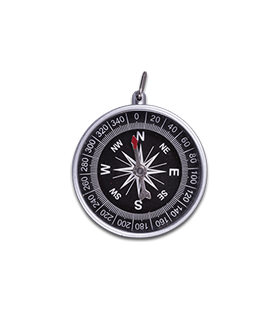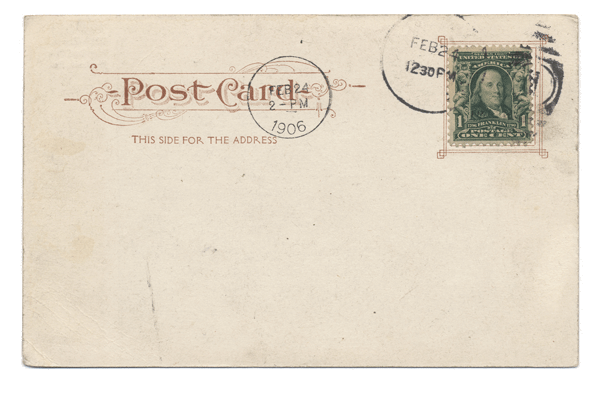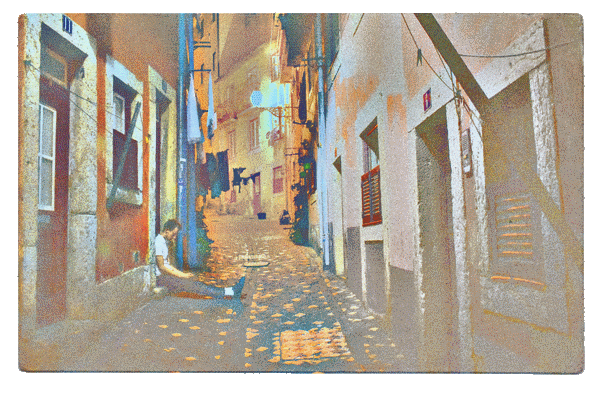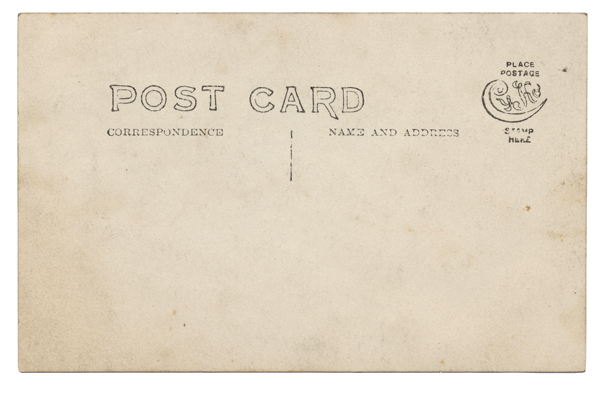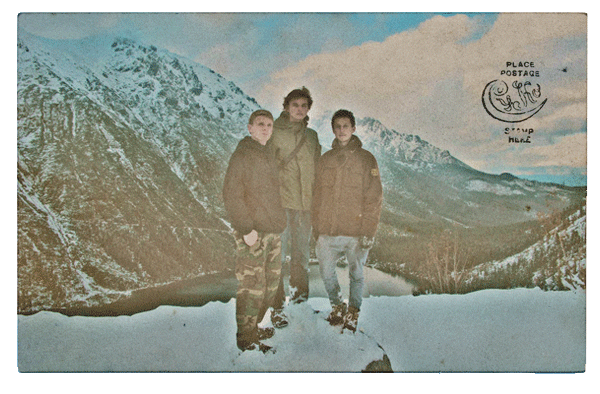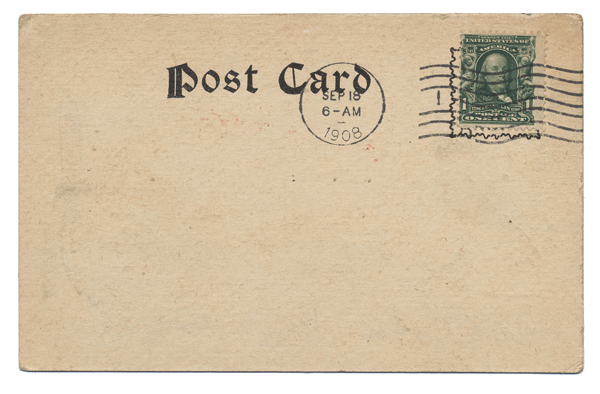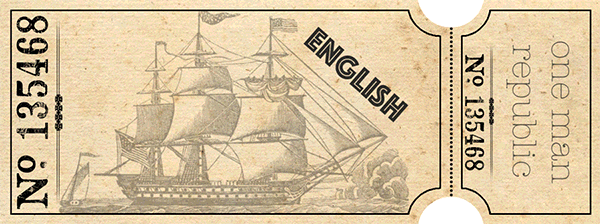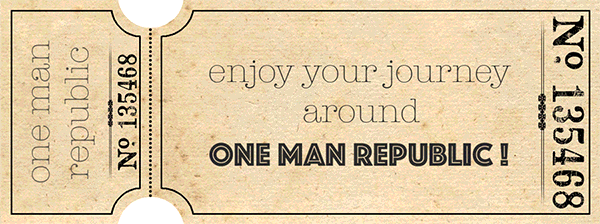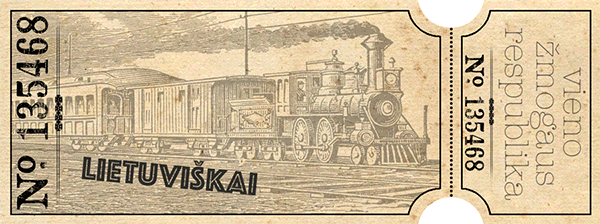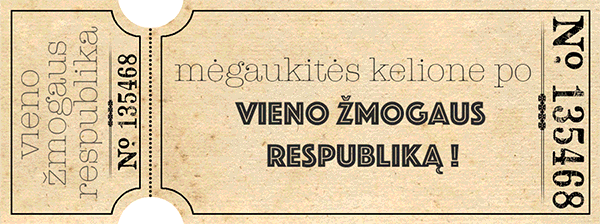senses
random sharing

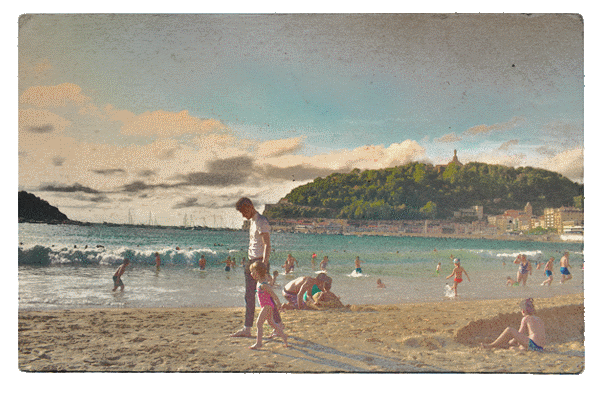
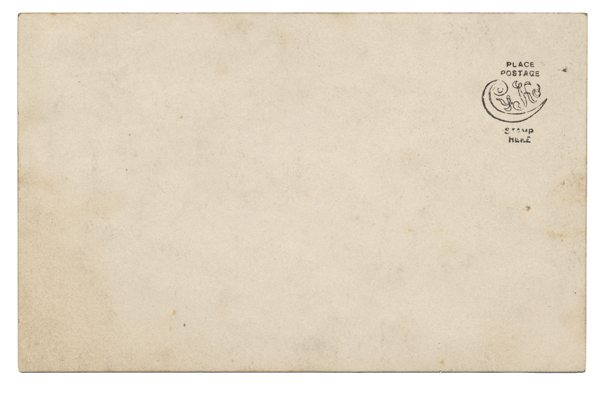
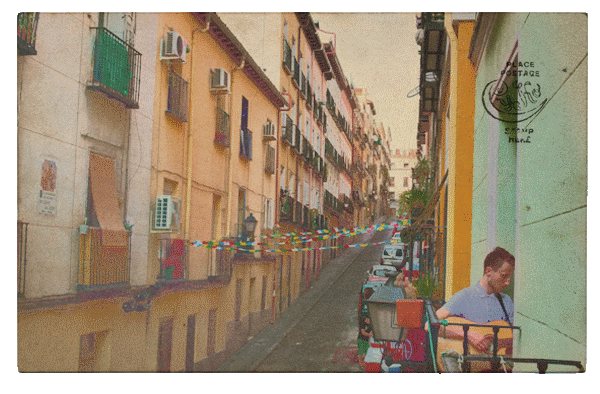
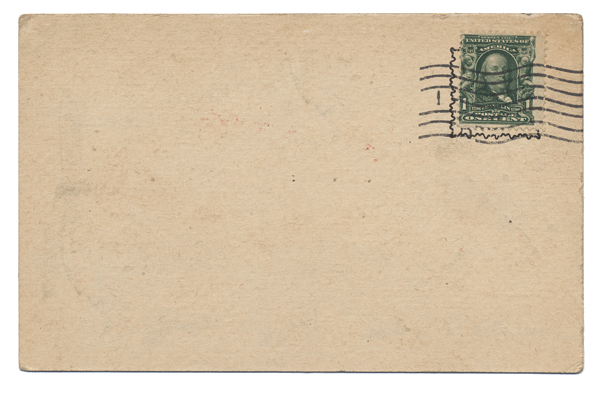
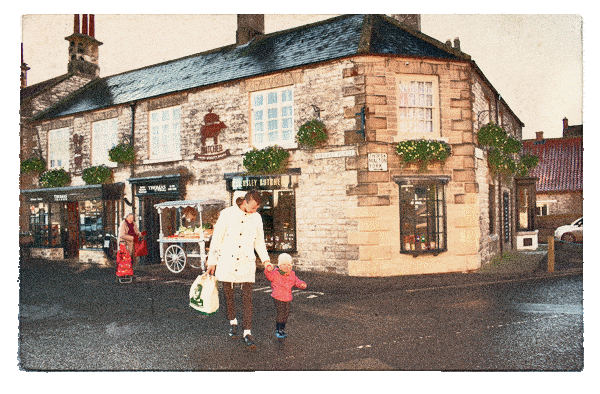

I postponed this sit-down with my pen for an especially long time. Because I knew that it would be sacred. My travel stories are feeling more and more like true writing, which means that one or a few evenings are far from enough anymore – I need to live by my writing. So naturally, the beginning of this post begins sacredly – at my favorite bar in Vilnius – Kalvarijų 22.
I discovered this place four or five years ago and instantly felt that stepping foot here was much more sacred than stepping foot into the dark Vilnius bars filled with egoistic youngsters. In this bar, I had the chance to sit down at one table with alcoholics, recent prisoners, gays, homeless people, those high up on the social ladder, true friends, and representatives of who even knows which social or cultural classes. To me, this was the most accurate representation of society that could be found in such a small space, from which I could draw thoughts and make observations. The overdressed and conceited men and women in the Vilnius bars didn’t seem to represent true life to me. That’s precisely why I read here at night and bring my friends here and introduce this place as another one of the sacred rooms of my life, connected by a sacred street. However, to describe the stories of this bar, I’d need a whole separate post, so for now, let’s get back to the summer of 2014.
I spent the first half of this summer in the post-Soviet states of Georgia and Armenia. There was one factor/feeling that had perhaps the biggest influence on this trip.
Before leaving, I defended the very first philosophical thesis in the history of the Faculty of Mathematics and Informatics at Vilnius University. In my Bachelor’s thesis, I used the methods of mathematical philosophy to prove the pointlessness of the economic, financial, and insurance models. Especially the pointlessness of using such a sacred thing as mathematics in them. One of the main contexts that I relied on was the thoughts and works of mathematician and philosopher Kurt Gödel.
To drift off a bit – I remember the feeling I had when I was much younger and I was standing at the underground metro passage in Paris. I was standing before a poster of Grizzly Bear, who was then one of the most popular bands of alternative music. Back then, when I listened to Grizzly Bear, I experienced such a feeling that I only completely comprehended at that precise moment in Paris. I felt that the music of this band, and all alternative music of that time, lacked freshness. And I knew that the only way to create this freshness and to revolutionize alternative music overall was with a combination of a guitar with non-standard tuning and a banjo.
After a couple, or maybe even a full five years, I noticed the name Mumford and Sons written somewhere. I hadn’t even heard their music yet but I instantly became filled with excitement because I knew that this would be precisely what I had felt years before in Paris. I wasn’t wrong.
But why am I telling you all of this? As I was getting ready to write my Bachelor’s thesis, I realized that throughout the many years spent swimming in the ocean of mathematics, I hadn’t discovered a single role model in this area that I adored with all my heart. As I was browsing articles of the mathematical philosophy journal Philosophia Mathematica in Oxford Journals, I noticed the name “Gödel”. Until then, I hadn’t read a single thought of this legend, but just as I felt when I saw the name Mumford and Sons, I instantly knew that this was the person I was searching for.
A bit later, I’ll introduce Gödel’s thought/proof that played an essential role in my trip. First, I should introduce one of the few most important 20th-century proofs of mathematics and all of science, the importance of which, unlike the other few works of Gödel that I personally find important, is recognized by the whole world of science.
The incompleteness theorem states that no finite mathematical set of axioms (statements that don’t need to be proven) will ever prove all mathematical truths/the whole truth of mathematics.
What does this important scientific conclusion have to do with my travels and with the world overall? Well, for me at least, this theorem provides substantial freedom. Adapting this theorem to other areas (although it would be a truly difficult task to provide proof of such an adaptation using the principles of mathematical logic) makes it clear that, for example, not a single finite legal framework will ever represent justice. Also – not a single hierarchical relationship defined by strict rules will ever represent a fair relationship between people, and so on.
In abstract terms, no truth can ever be expressed by any evidence. Truth is absolute, whereas proof is local and dependent.
But let’s get back to what I found to be crucially important to me as I was on the road in the summer of 2014. It was Gödel’s application of certain methods of geometry, philosophy, and mathematical logic to his best friend Albert Einstein’s theory of relativity, which led to the conclusion that time doesn’t exist. This was a conclusion that initially caused a stir in the world of science but was then quickly pushed away into oblivion, without ever really proving Gödel wrong. This is understandable in the world of science – acknowledging the non-existence of time would destroy most of the science. So just like in any other context of life, it’s easier to just turn away than to consistently and constructively prove your truth.
Naturally, this raises the question – what does the non-existence of time mean? Is it the acknowledgment of deterministic views (meaning that everything is already determined)? Or perhaps it means that our lives go on for eternity?
For every question that arises from this theory of the non-existence of time, I could go on and on with the longest of answers. But for an easily understandable and short answer, allow me to introduce an episode from Axel Munthe’s The Story of San Michele, to which I will adapt my insights about time.
Imagine God reading a book about the lives of some random people. At some point in the book, God gets tired, closes the book, and goes to sleep:
1. Does closing the book stop people’s lives at that same point? No, because they exist independently of God (The answer to this first question shows that we have free will).
2. The book has already been written, so are the lives of the characters already determined? In a way, yes, but on each page of the book, in each moment, the characters are enjoying life without knowing their fate. Point 2 shows that although we have the freedom to shape our own lives, everything is already written down.
3. But God can read the book thousands of times, so will the lives of the characters repeat for those thousands of times? Asking this is like asking how many times a point in a circle travels around that circle:) It doesn’t travel anywhere, it’s just part of that circle. Just like the character on page 25 is part of the whole book – you can read that same page as many times as you’d like, but to the character, nothing ever repeats itself. Point 3 shows that although our lives are forever recorded somewhere, we cannot repeat and enjoy every single moment of life forever – we can only live in that internal intuition of non-existent time that we call the present. Overall, this question of repeating something is one of the clichés that flow from our accepted perception of existent time.
You may say – “Let’s say I agree with such a perception of time. What’s the point in life, then?”. I could answer this with my own living example – the way that I make sense of this notion of time.
My whole life, I felt that time didn’t exist but Gödel’s proof allowed me to finally use this knowledge to create meaning in my life. It was during this summer’s trip that I naturally stopped focusing my gaze on objects (I laughed because, in a way, this reminded me of Carlos Castaneda’s recommendation to keep your gaze just above the horizon to access conscious dreams and different worlds). A non-focused gaze provided me with what I had always wanted to feel – people’s very much blocked bodily senses. So I began to walk through the world without focusing my gaze on temporary objects that are but mere scenography of this game, and by accessing all of these senses, I began to do the one thing that you can do absolutely wholly when time doesn’t exist – sense every single moment, every single life.
Perhaps the most striking example of this whole theory is the episode of me traveling on the train from Yerevan to Tbilisi. I was in a coupe with three women and for half of the trip, we didn’t speak a word to each other. But then as the night was approaching, they asked me what I was reading and we found some common ground. They asked me what those rods that I was traveling with were, and I said that was my set of Scottish Bagpipes:) They sure knew how to enjoy life because they instantly found the conductor and asked if I could organize a concert on the train. The conductor said that once we pass the Armenian-Georgian border, we’re free to organize a concert. Word spread quickly around the crowded train that passengers would soon, perhaps for their first time, get to hear the sound of the Scottish Bagpipes on this train.
So here’s the situation. We’re in Georgian territory, in the middle of the night. I step out of my coupe and see four-five smiling faces peaking from each coupe of the train. I begin my performance and people begin to clap and sing, while my colleagues from my coupe walk around the train collecting money in a hat. Everyone’s happy and in the moment. I gaze into the far of the train and realize what a waste it would be to concentrate my gaze on something or to try and comprehend how fascinating the whole environment of the train was. Instead, I open up all of my bodily senses and enjoy the moment. And life. This was all that I could do.
For now, let’s leave all of the metaphysics aside because I want to share one moment from the trip that’s more related to social and cultural principles.
In Yerevan, I lived in a small apartment that was turned into a hostel. Unlike usually, I chatted a lot with the other hostel residents, and the atmosphere there was sacred. A nineteen-year-old Indian boy G. was living there, who I would always exchange smiles with in the mornings, before delving into the streets of Yerevan. The energetics of this young man were bright and interesting, so one night, we went to the store together, grabbed a pint of some mystical vodka for 1.20 euro, and returned to the hostel’s kitchen, which was filled with positive spirits.
A few more people joined us but as the night was approaching, the two of us headed to the store again for the same reason and we finally sat down in the kitchen alone. At first, we watched some excerpts from Indian movies with the actor Aamir Khan, who seemed to oppose the both of us greatly, then we sang some songs we knew by heart from the Indian movie 3 Idiots, and finally, G. began to tell me his life story.
The young man used to live in an Indian village, where there was a strict tradition – young people weren’t allowed to find their other half in that same village. But of course, a young person follows his nature, not the traditions of his village – G. engaged in a relationship with another girl from his village. Once her parents found out about her sexual relationship with G., they murdered her because of the dishonor she brought upon the family. G. was also stabbed with a knife, but he survived. G. showed me the scars all over his body left from the stabs.
From the energetics coming from G., I knew that he wasn’t lying, but as a true European, I kept asking him where the police or any other similar signs of civilization were during all of this. To this, G. answered that in India, you’re nothing to the police if you don’t have money. Besides, in this case, everyone accepted, based on tradition, that the young girl deserved to die for what she had done. The girl was added to the list of missing people.
The story didn’t end there. G.’s parents sent him to live in a large Indian city because they knew that it was no longer possible for him to stay in the village. For a few years, G. happily lived in the city and made a very good friend there. One day, G. was sitting in a cafe with the mentioned friend and a few of his other buddies. There was also a pretty famous Indian musician celebrating something at that same cafe. The latter decided to have some fun – he began harassing the cafe guests and ended up beating up G.’s company with all of his friends. The result – G.’s mentioned best friend got killed. Again, he wasn’t lying, but I persisted with my European questions – perhaps G.’s friends provoked the fight themselves? And where was the police?
Again, G.’s answers were simple – in India, if you have money and social power – then you also have the police. Whereas the public disrespect of the rich toward a person’s life was no surprise in India.
Finally, G.’s parents saved up some more money to send their child away from that dump. That’s how G. got to Armenia, although he didn’t feel especially great here, either. At the moment I’m writing this, G. is actually starting his studies in a pretty great and socially strong country – New Zealand. We keep in touch with G. and I can only pray that this charismatic and strong young man ends up happy until our paths cross again.
So what’s my point in this story? The point is that there is a huge amplitude in measurements of the same things in different parts of the world. Take this, for example – to the average European, losing their job is an utter tragedy. But to G., merely being alive makes him happier than ever. This observation is obvious but what I want to point out is that it’s a true honor not only to hear such a story with the mentioned contrasting measurements of my own environment but to also be able to feel this story with my open senses. To sense this in the presence of such a sacred environment – on a summer night in the kitchen of that Yerevan hotel, with a nineteen-year-old Indian and 1.20-euro vodka in front of me. When you hear a similar story on TV and in your own environment, you never feel the amplitude of the mentioned measurements with your whole body. You may ask – but what is the point in sensing these stories with your whole body, especially such a negative story?
While it is true that this story isn’t very positive, the sign of the story’s energetics – a plus or a minus – isn’t important. What’s important is the amount of energetics. And in this case, the amount was huge. So the point in this is to wake up the next morning, add a plus sign to all of the absorbed energetics, and go on feeling much more powerful.
One of the main goals of this trip was to go to the remote and mountainous Tusheti National Park in Georgia and to perform my music and reading routine that I had begun to lose in Lithuania. Once I arrived at this magical place of nature, I felt that I had to go to the village of Dartlo that was nearby. After wandering around a bit, I figured out that I had two ways to get to Dartlo – do a circle of about twenty kilometers or climb over the mountain in front of me that was three kilometers above sea level. I chose the second option.
I reached the top of the mountain in half a day, took a quick nap, and began hiking down. For a while, it wasn’t too difficult but then the number of paths to choose from kept decreasing and I was soon surrounded by extremely dense bushes and steep cliffs. Finally, the only option of getting down was through a mountain stream and the rocks beneath it. I took off my shoes and went through some slopes that weren’t too powerful but then, I suddenly realized that there was no way for me to get back up the slopes, and they were only getting bigger and steeper ahead.
It was clear that the mountains had set a trap for me but my body refused to understand this. I just wanted to scream out, “it’s me, it’s Andrius Romaska! The same Andrius Romaska who has lots of friends in Lithuania and who always thinks of new things to do, the same Andrius Romaska who was just surrounded by civilization – airports, stores…” After all, I had to have some privileges, I didn’t belong to the mountains. But at that moment, I did belong to the mountains and I needed to figure out what to do.
I started hiking down – sometimes through the stream rocks, sometimes through the narrow stretch of grass nearby. Several times, I slipped on the rocks or the grass and uncontrollably slid down until I’d grab some rock or a long patch of grass. As I was standing on the safe stretch of grass, I suddenly felt my whole body trembling. This was when I understood the main idea of the mountains’ trap.
For the first time in my life, I felt that I was doing something fully one-hundred-percent. Even my smallest fingernail dug as deep into the dirt as it possibly could. My body could hardly withstand such a huge amount of information and work, so it just trembled.
In this way, as my body was completely trembling, centimeter by centimeter, I got back down to the ground in half a day. I was safe. I looked up at the sky and couldn’t believe that I had succeeded. My body kept trembling until the next morning. Plus, to make myself as comfortable as possible, I hiked down almost naked, so the sun had completely burned my body, causing enormous pain for the whole week ahead.
Nevertheless, I reached Dartlo and set up my tent a few kilometers from the town. There, I completed my routine every single day – singing exercises, bagpipe pieces, William Paul Young’s The Shack, Rainer Maria Rilke’s The Notebooks of Malte Laurids Brigge, and improving my Russian language skills reading Лев Толстой Все Лучшие Сказки и Рассказы.
As for the mountain story, I just want to say one thing – I wish that I could do all things in life just as genuinely and from the heart so that I could get as close as possible to that feeling I had in the mountains when I was fighting for my life with all that I had, with one hundred percent. So that I could feel my body tremble once again. I wish you the same.
So, my friends, this is what went down this summer in these post-Soviet states. Lots of adventures, observations, and people remain behind the scenes. I only wanted to share these episodes because they are the ones that rotate around the same axis. The axis of senses.
Perhaps you’ve noticed that I use the words “sacred” and “holy” pretty often. A strong Christian would probably resent the use of these words in the context of sitting in the kitchen and drinking vodka. My friend K. once asked me, “Andrius, what do you perceive as holy and good?” – “Holiness is in indirect holiness, goodness is in indirect goodness”, I answered. More and more I keep sensing that God doesn’t want me to spend my life volunteering all day long at some red cross home and he doesn’t want me to go to church every week, etc. I often sense his presence when I’m drinking with a friend until dawn, if this is done meaningfully and leads to me getting closer to my true self, as well as in other situations that strong Christians would resent.
So I would like to wish you to open up your bodily senses to the maximum and try to truly sense if there is a need, at this precise moment in your life, to eat meat or not, to drink alcohol or not, to go to church or not. Not a single person or religion will ever give you a better answer than you’d get by focusing on your body. After all, God is within it. You just need to learn to listen.

I postponed this sit-down with my pen for an especially long time. Because I knew that it would be sacred. My travel stories are feeling more and more like true writing, which means that one or a few evenings are far from enough anymore – I need to live by my writing. So naturally, the beginning of this post begins sacredly – at my favorite bar in Vilnius – Kalvarijų 22.
I discovered this place four or five years ago and instantly felt that stepping foot here was much more sacred than stepping foot into the dark Vilnius bars filled with egoistic youngsters. In this bar, I had the chance to sit down at one table with alcoholics, recent prisoners, gays, homeless people, those high up on the social ladder, true friends, and representatives of who even knows which social or cultural classes. To me, this was the most accurate representation of society that could be found in such a small space, from which I could draw thoughts and make observations. The overdressed and conceited men and women in the Vilnius bars didn’t seem to represent true life to me. That’s precisely why I read here at night and bring my friends here and introduce this place as another one of the sacred rooms of my life, connected by a sacred street. However, to describe the stories of this bar, I’d need a whole separate post, so for now, let’s get back to the summer of 2014.
I spent the first half of this summer in the post-Soviet states of Georgia and Armenia. There was one factor/feeling that had perhaps the biggest influence on this trip.
Before leaving, I defended the very first philosophical thesis in the history of the Faculty of Mathematics and Informatics at Vilnius University. In my Bachelor’s thesis, I used the methods of mathematical philosophy to prove the pointlessness of the economic, financial, and insurance models. Especially the pointlessness of using such a sacred thing as mathematics in them. One of the main contexts that I relied on was the thoughts and works of mathematician and philosopher Kurt Gödel.
To drift off a bit – I remember the feeling I had when I was much younger and I was standing at the underground metro passage in Paris. I was standing before a poster of Grizzly Bear, who was then one of the most popular bands of alternative music. Back then, when I listened to Grizzly Bear, I experienced such a feeling that I only completely comprehended at that precise moment in Paris. I felt that the music of this band, and all alternative music of that time, lacked freshness. And I knew that the only way to create this freshness and to revolutionize alternative music overall was with a combination of a guitar with non-standard tuning and a banjo.
After a couple, or maybe even a full five years, I noticed the name Mumford and Sons written somewhere. I hadn’t even heard their music yet but I instantly became filled with excitement because I knew that this would be precisely what I had felt years before in Paris. I wasn’t wrong.
But why am I telling you all of this? As I was getting ready to write my Bachelor’s thesis, I realized that throughout the many years spent swimming in the ocean of mathematics, I hadn’t discovered a single role model in this area that I adored with all my heart. As I was browsing articles of the mathematical philosophy journal Philosophia Mathematica in Oxford Journals, I noticed the name “Gödel”. Until then, I hadn’t read a single thought of this legend, but just as I felt when I saw the name Mumford and Sons, I instantly knew that this was the person I was searching for.
A bit later, I’ll introduce Gödel’s thought/proof that played an essential role in my trip. First, I should introduce one of the few most important 20th-century proofs of mathematics and all of science, the importance of which, unlike the other few works of Gödel that I personally find important, is recognized by the whole world of science.
The incompleteness theorem states that no finite mathematical set of axioms (statements that don’t need to be proven) will ever prove all mathematical truths/the whole truth of mathematics.
What does this important scientific conclusion have to do with my travels and with the world overall? Well, for me at least, this theorem provides substantial freedom. Adapting this theorem to other areas (although it would be a truly difficult task to provide proof of such an adaptation using the principles of mathematical logic) makes it clear that, for example, not a single finite legal framework will ever represent justice. Also – not a single hierarchical relationship defined by strict rules will ever represent a fair relationship between people, and so on.
In abstract terms, no truth can ever be expressed by any evidence. Truth is absolute, whereas proof is local and dependent.
But let’s get back to what I found to be crucially important to me as I was on the road in the summer of 2014. It was Gödel’s application of certain methods of geometry, philosophy, and mathematical logic to his best friend Albert Einstein’s theory of relativity, which led to the conclusion that time doesn’t exist. This was a conclusion that initially caused a stir in the world of science but was then quickly pushed away into oblivion, without ever really proving Gödel wrong. This is understandable in the world of science – acknowledging the non-existence of time would destroy most of the science. So just like in any other context of life, it’s easier to just turn away than to consistently and constructively prove your truth.
Naturally, this raises the question – what does the non-existence of time mean? Is it the acknowledgment of deterministic views (meaning that everything is already determined)? Or perhaps it means that our lives go on for eternity?
For every question that arises from this theory of the non-existence of time, I could go on and on with the longest of answers. But for an easily understandable and short answer, allow me to introduce an episode from Axel Munthe’s The Story of San Michele, to which I will adapt my insights about time.
Imagine God reading a book about the lives of some random people. At some point in the book, God gets tired, closes the book, and goes to sleep:
1. Does closing the book stop people’s lives at that same point? No, because they exist independently of God (The answer to this first question shows that we have free will).
2. The book has already been written, so are the lives of the characters already determined? In a way, yes, but on each page of the book, in each moment, the characters are enjoying life without knowing their fate. Point 2 shows that although we have the freedom to shape our own lives, everything is already written down.
3. But God can read the book thousands of times, so will the lives of the characters repeat for those thousands of times? Asking this is like asking how many times a point in a circle travels around that circle:) It doesn’t travel anywhere, it’s just part of that circle. Just like the character on page 25 is part of the whole book – you can read that same page as many times as you’d like, but to the character, nothing ever repeats itself. Point 3 shows that although our lives are forever recorded somewhere, we cannot repeat and enjoy every single moment of life forever – we can only live in that internal intuition of non-existent time that we call the present. Overall, this question of repeating something is one of the clichés that flow from our accepted perception of existent time.
You may say – “Let’s say I agree with such a perception of time. What’s the point in life, then?”. I could answer this with my own living example – the way that I make sense of this notion of time.
My whole life, I felt that time didn’t exist but Gödel’s proof allowed me to finally use this knowledge to create meaning in my life. It was during this summer’s trip that I naturally stopped focusing my gaze on objects (I laughed because, in a way, this reminded me of Carlos Castaneda’s recommendation to keep your gaze just above the horizon to access conscious dreams and different worlds). A non-focused gaze provided me with what I had always wanted to feel – people’s very much blocked bodily senses. So I began to walk through the world without focusing my gaze on temporary objects that are but mere scenography of this game, and by accessing all of these senses, I began to do the one thing that you can do absolutely wholly when time doesn’t exist – sense every single moment, every single life.
Perhaps the most striking example of this whole theory is the episode of me traveling on the train from Yerevan to Tbilisi. I was in a coupe with three women and for half of the trip, we didn’t speak a word to each other. But then as the night was approaching, they asked me what I was reading and we found some common ground. They asked me what those rods that I was traveling with were, and I said that was my set of Scottish Bagpipes:) They sure knew how to enjoy life because they instantly found the conductor and asked if I could organize a concert on the train. The conductor said that once we pass the Armenian-Georgian border, we’re free to organize a concert. Word spread quickly around the crowded train that passengers would soon, perhaps for their first time, get to hear the sound of the Scottish Bagpipes on this train.
So here’s the situation. We’re in Georgian territory, in the middle of the night. I step out of my coupe and see four-five smiling faces peaking from each coupe of the train. I begin my performance and people begin to clap and sing, while my colleagues from my coupe walk around the train collecting money in a hat. Everyone’s happy and in the moment. I gaze into the far of the train and realize what a waste it would be to concentrate my gaze on something or to try and comprehend how fascinating the whole environment of the train was. Instead, I open up all of my bodily senses and enjoy the moment. And life. This was all that I could do.
For now, let’s leave all of the metaphysics aside because I want to share one moment from the trip that’s more related to social and cultural principles.
In Yerevan, I lived in a small apartment that was turned into a hostel. Unlike usually, I chatted a lot with the other hostel residents, and the atmosphere there was sacred. A nineteen-year-old Indian boy G. was living there, who I would always exchange smiles with in the mornings, before delving into the streets of Yerevan. The energetics of this young man were bright and interesting, so one night, we went to the store together, grabbed a pint of some mystical vodka for 1.20 euro, and returned to the hostel’s kitchen, which was filled with positive spirits.
A few more people joined us but as the night was approaching, the two of us headed to the store again for the same reason and we finally sat down in the kitchen alone. At first, we watched some excerpts from Indian movies with the actor Aamir Khan, who seemed to oppose the both of us greatly, then we sang some songs we knew by heart from the Indian movie 3 Idiots, and finally, G. began to tell me his life story.
The young man used to live in an Indian village, where there was a strict tradition – young people weren’t allowed to find their other half in that same village. But of course, a young person follows his nature, not the traditions of his village – G. engaged in a relationship with another girl from his village. Once her parents found out about her sexual relationship with G., they murdered her because of the dishonor she brought upon the family. G. was also stabbed with a knife, but he survived. G. showed me the scars all over his body left from the stabs.
From the energetics coming from G., I knew that he wasn’t lying, but as a true European, I kept asking him where the police or any other similar signs of civilization were during all of this. To this, G. answered that in India, you’re nothing to the police if you don’t have money. Besides, in this case, everyone accepted, based on tradition, that the young girl deserved to die for what she had done. The girl was added to the list of missing people.
The story didn’t end there. G.’s parents sent him to live in a large Indian city because they knew that it was no longer possible for him to stay in the village. For a few years, G. happily lived in the city and made a very good friend there. One day, G. was sitting in a cafe with the mentioned friend and a few of his other buddies. There was also a pretty famous Indian musician celebrating something at that same cafe. The latter decided to have some fun – he began harassing the cafe guests and ended up beating up G.’s company with all of his friends. The result – G.’s mentioned best friend got killed. Again, he wasn’t lying, but I persisted with my European questions – perhaps G.’s friends provoked the fight themselves? And where was the police?
Again, G.’s answers were simple – in India, if you have money and social power – then you also have the police. Whereas the public disrespect of the rich toward a person’s life was no surprise in India.
Finally, G.’s parents saved up some more money to send their child away from that dump. That’s how G. got to Armenia, although he didn’t feel especially great here, either. At the moment I’m writing this, G. is actually starting his studies in a pretty great and socially strong country – New Zealand. We keep in touch with G. and I can only pray that this charismatic and strong young man ends up happy until our paths cross again.
So what’s my point in this story? The point is that there is a huge amplitude in measurements of the same things in different parts of the world. Take this, for example – to the average European, losing their job is an utter tragedy. But to G., merely being alive makes him happier than ever. This observation is obvious but what I want to point out is that it’s a true honor not only to hear such a story with the mentioned contrasting measurements of my own environment but to also be able to feel this story with my open senses. To sense this in the presence of such a sacred environment – on a summer night in the kitchen of that Yerevan hotel, with a nineteen-year-old Indian and 1.20-euro vodka in front of me. When you hear a similar story on TV and in your own environment, you never feel the amplitude of the mentioned measurements with your whole body. You may ask – but what is the point in sensing these stories with your whole body, especially such a negative story?
While it is true that this story isn’t very positive, the sign of the story’s energetics – a plus or a minus – isn’t important. What’s important is the amount of energetics. And in this case, the amount was huge. So the point in this is to wake up the next morning, add a plus sign to all of the absorbed energetics, and go on feeling much more powerful.
One of the main goals of this trip was to go to the remote and mountainous Tusheti National Park in Georgia and to perform my music and reading routine that I had begun to lose in Lithuania. Once I arrived at this magical place of nature, I felt that I had to go to the village of Dartlo that was nearby. After wandering around a bit, I figured out that I had two ways to get to Dartlo – do a circle of about twenty kilometers or climb over the mountain in front of me that was three kilometers above sea level. I chose the second option.
I reached the top of the mountain in half a day, took a quick nap, and began hiking down. For a while, it wasn’t too difficult but then the number of paths to choose from kept decreasing and I was soon surrounded by extremely dense bushes and steep cliffs. Finally, the only option of getting down was through a mountain stream and the rocks beneath it. I took off my shoes and went through some slopes that weren’t too powerful but then, I suddenly realized that there was no way for me to get back up the slopes, and they were only getting bigger and steeper ahead.
It was clear that the mountains had set a trap for me but my body refused to understand this. I just wanted to scream out, “it’s me, it’s Andrius Romaska! The same Andrius Romaska who has lots of friends in Lithuania and who always thinks of new things to do, the same Andrius Romaska who was just surrounded by civilization – airports, stores…” After all, I had to have some privileges, I didn’t belong to the mountains. But at that moment, I did belong to the mountains and I needed to figure out what to do.
I started hiking down – sometimes through the stream rocks, sometimes through the narrow stretch of grass nearby. Several times, I slipped on the rocks or the grass and uncontrollably slid down until I’d grab some rock or a long patch of grass. As I was standing on the safe stretch of grass, I suddenly felt my whole body trembling. This was when I understood the main idea of the mountains’ trap.
For the first time in my life, I felt that I was doing something fully one-hundred-percent. Even my smallest fingernail dug as deep into the dirt as it possibly could. My body could hardly withstand such a huge amount of information and work, so it just trembled.
In this way, as my body was completely trembling, centimeter by centimeter, I got back down to the ground in half a day. I was safe. I looked up at the sky and couldn’t believe that I had succeeded. My body kept trembling until the next morning. Plus, to make myself as comfortable as possible, I hiked down almost naked, so the sun had completely burned my body, causing enormous pain for the whole week ahead.
Nevertheless, I reached Dartlo and set up my tent a few kilometers from the town. There, I completed my routine every single day – singing exercises, bagpipe pieces, William Paul Young’s The Shack, Rainer Maria Rilke’s The Notebooks of Malte Laurids Brigge, and improving my Russian language skills reading Лев Толстой Все Лучшие Сказки и Рассказы.
As for the mountain story, I just want to say one thing – I wish that I could do all things in life just as genuinely and from the heart so that I could get as close as possible to that feeling I had in the mountains when I was fighting for my life with all that I had, with one hundred percent. So that I could feel my body tremble once again. I wish you the same.
So, my friends, this is what went down this summer in these post-Soviet states. Lots of adventures, observations, and people remain behind the scenes. I only wanted to share these episodes because they are the ones that rotate around the same axis. The axis of senses.
Perhaps you’ve noticed that I use the words “sacred” and “holy” pretty often. A strong Christian would probably resent the use of these words in the context of sitting in the kitchen and drinking vodka. My friend K. once asked me, “Andrius, what do you perceive as holy and good?” – “Holiness is in indirect holiness, goodness is in indirect goodness”, I answered. More and more I keep sensing that God doesn’t want me to spend my life volunteering all day long at some red cross home and he doesn’t want me to go to church every week, etc. I often sense his presence when I’m drinking with a friend until dawn, if this is done meaningfully and leads to me getting closer to my true self, as well as in other situations that strong Christians would resent.
So I would like to wish you to open up your bodily senses to the maximum and try to truly sense if there is a need, at this precise moment in your life, to eat meat or not, to drink alcohol or not, to go to church or not. Not a single person or religion will ever give you a better answer than you’d get by focusing on your body. After all, God is within it. You just need to learn to listen.



